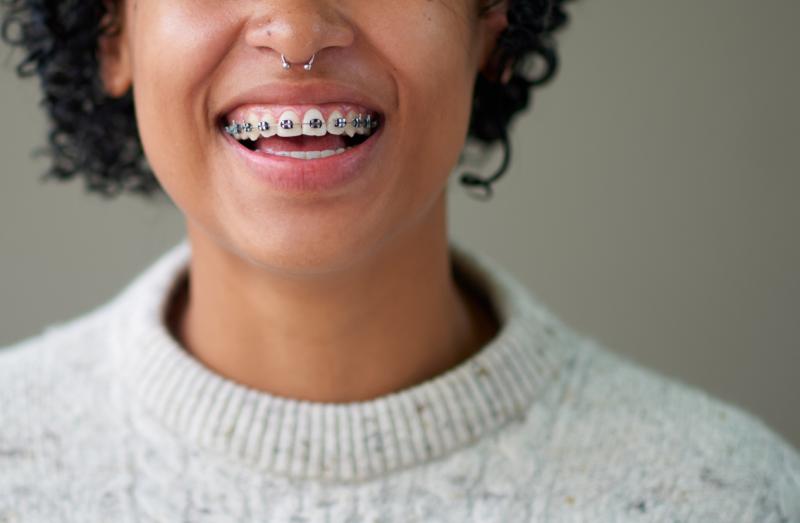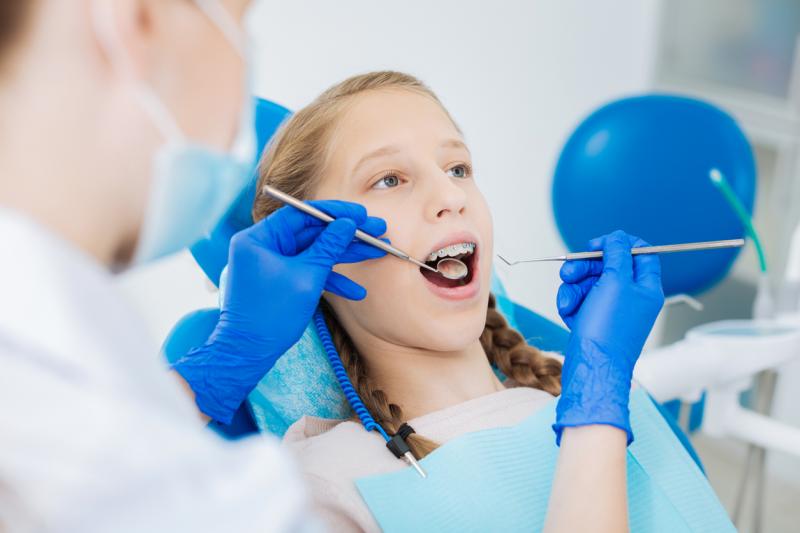What Orthodontists Won't Tell You

Orthodontists are trying to convince you that your children need braces. But they aren't going to tell you the truth about these devices - which is that they mainly benefit orthodontists, not patients. Here are six things orthodontists don't want you to know:
6 Things Orthodontists Won't Tell You
1) Someone else might have used your braces before you
Orthodontists want to convince you that every person who ever had a smile problem needs braces. They fail to mention that many of the "brace faces" in their waiting rooms were walking around for years with straight teeth, before deciding to have orthodontic treatment. In fact, about one-third of all teens and adults who wear braces today have never been seen by an orthodontist before in their lives.
2) Braces only straighten your teeth, they don't improve your smile
Orthodontists want you to think that braces are a magical way to transform the entire mouth. In reality, though, braces primarily affect the position of your teeth - not how they look from lip to lip. It's true that poorly aligned teeth can cause problems with speech and eating - but these problems have nothing to do with crooked or spaced teeth. Orthodontists know that perfectly straight teeth will generally result in a more attractive-looking smile - but that doesn't change the fact that beautiful smiles can be created without braces.
3) Braces will only make your teeth look good when you're wearing them
Some orthodontists claim that you don't need to wear your retainer after getting braces. Their goal is to convince patients that wearing retainers after treatment is optional - and isn't really necessary if everything looks straight during treatment. But this reasoning makes no sense since the job of braces is to pull teeth into a straighter position; not simply push them in place for a year or two. If it's true that continuing wearing an appliance (retainer) will prevent further tooth shifting, then why would any doctor stop prescribing them? I can tell you - it's because they want more business! And if their retention claims are true - why do most orthodontists require them to wear a retainer for two years after braces anyway?

4) Your teeth may never stop shifting
When you're getting braces, your orthodontist is going to recommend wearing a retainer - often called a Hawley retainer - after treatment. They'll insist that if you want your teeth to remain straight, you must continue using the appliance every night. But there's one problem with this advice: no published scientific studies have ever shown that long-term use of retainers works better than short-term use. In other words, science has never proved that wearing an appliance helps maintain newly straightened teeth. And even if the claim was true, it would be irrelevant because orthodontists are often too quick to blame every single tooth movement on the patient's lack of retainer use.
5) Braces can be very painful - especially for children
The truth is, while braces may cause minor discomfort, most patients today have little to no pain during treatment. What you do need to know, however, is that some kids experience tremendous discomfort while wearing braces. And these problems can seriously affect their quality of life - including how they eat and sleep. So if your child complains about feeling any kind of significant pain or unusual discomfort after getting braces, please contact my office immediately. We'll work with our orthodontist to quickly address the problem so that your child feels better as soon as possible.
6) You may not need to wear braces for as long as you think
There's a huge difference between wearing braces for two years and wearing braces for four years. In fact, there are several types of modern appliances that can straighten teeth in less time than traditional metal brackets or wires. For example, ceramic braces or Invisalign clear aligners can often correct minor orthodontic problems in just a few months - instead of a couple of years. And if your child needs early treatment because the permanent front eight teeth aren't coming in straight, they could be out of traditional metal braces much sooner. Please remember, though, every case is different; so it's best to discuss these options with your orthodontist.
If you're considering getting braces, please remember that you have many alternatives to traditional metal brackets. And if your child needs early treatment, they may be able to wear their retainer less time than anticipated.
More to Read:
Previous Posts:





